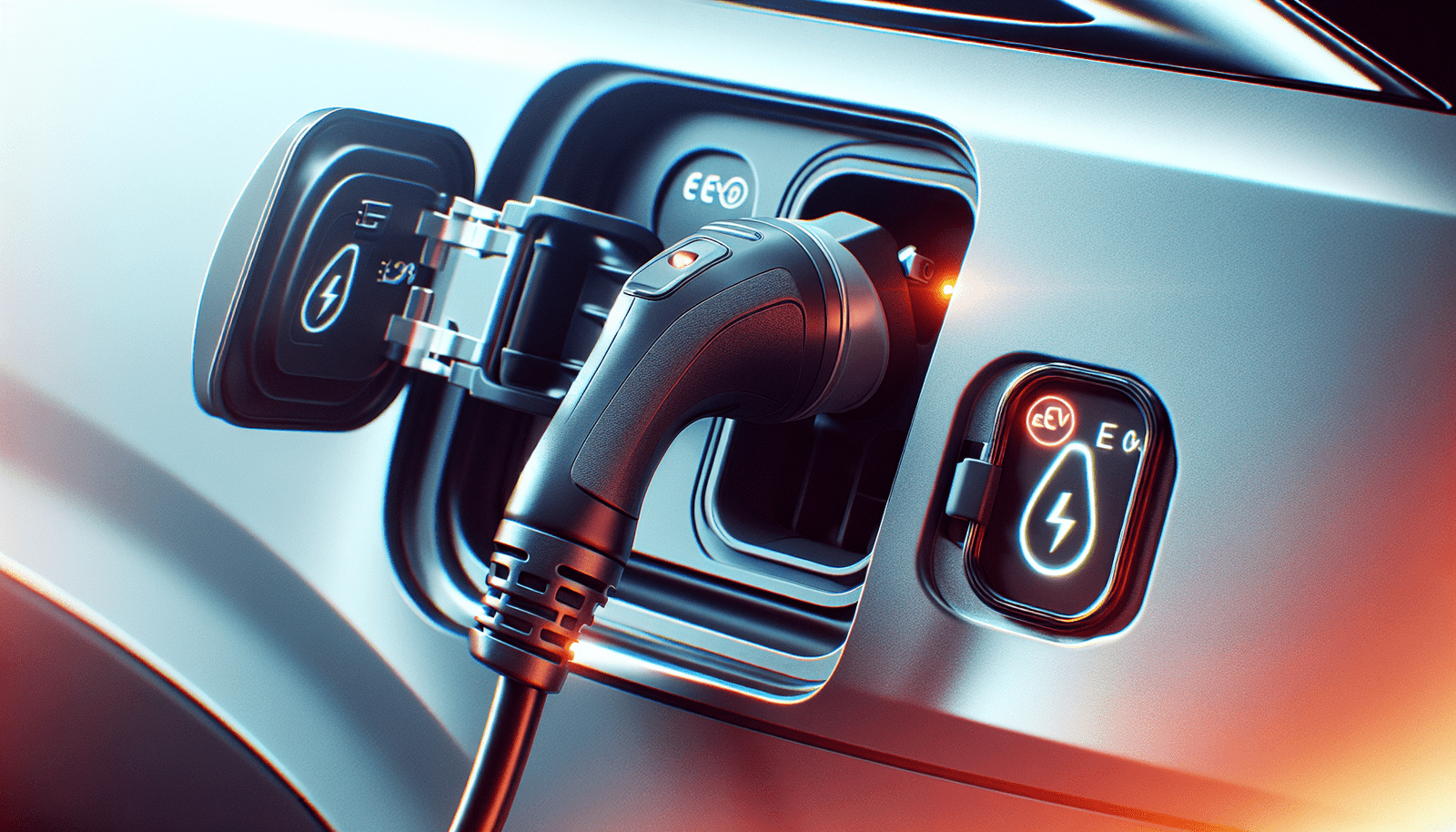Are you an avid electric vehicle user or someone who is searching for EV charger product reviews? If so, you may have questions about the security of EV charging stations. In this article, we will address common concerns and provide you with solutions to keep your EV charging experience secure. We understand that it’s important for you to have peace of mind when charging your electric vehicle, and we want to help you make informed decisions. So, let’s explore some EV charging station security solutions that will ensure your EV remains safe while charging. Read on to find out more!
Understanding EV Charging Station Security
With the increasing popularity of electric vehicles (EVs), the demand for EV charging stations has skyrocketed. As a result, it is crucial to ensure the security of these charging stations to protect users and their vehicles from potential threats. In this article, we will delve into the basics of EV charging station security, discuss the different types of threats they face, explore the physical and digital security solutions available, and provide insights on access control mechanisms, security standards, managing user data privacy, fraud prevention, and the factors to consider when choosing a secure EV charging station. We will also touch upon future trends in EV charging station security. So let’s dive in and understand the importance of robust EV charging station security.
Basics of EV Charging Station Security
EV charging station security involves implementing measures to protect the charging infrastructure, user data, and prevent misuse of the charging stations. It encompasses both physical and digital security aspects to create a comprehensive security framework. By ensuring the security of EV charging stations, users can have peace of mind while charging their vehicles.
Importance of Robust EV Charging Station Security
A robust security system is vital for EV charging stations due to various reasons. Firstly, it prevents physical vandalism and theft, protecting the charging equipment and vehicles. Secondly, it safeguards against software-based attacks that can compromise the integrity and security of the charging infrastructure. Moreover, robust security measures help prevent unauthorized use of the charging stations, ensuring that only legitimate users can access and utilize the facilities. With the increasing adoption of EVs, it is crucial to prioritize security to build trust and encourage more people to switch to electric vehicles.
Types of Threats to EV Charging Stations
To develop an effective security strategy, it is essential to understand the different types of threats that EV charging stations might face. These threats can be broadly categorized into physical vandalism and theft, software-based attacks, and unauthorized use.
Physical Vandalism and Theft
Physical vandalism and theft pose significant threats to EV charging stations. Vandalism can result in damage to the charging equipment and render the stations unusable. Additionally, theft of the charging equipment or vehicle components can cause financial loss and inconvenience to the EV owners.
Software-based Attacks
In today’s interconnected world, software-based attacks pose a significant risk to EV charging stations. Hackers may attempt to exploit vulnerabilities in the charging infrastructure to gain unauthorized access, manipulate charging sessions, or tamper with user data. These attacks can compromise the overall security and functionality of the charging system.
Unauthorized Use
Unauthorized use of EV charging stations can lead to various issues. It can result in increased operational costs, as non-authorized users consume resources without paying. Moreover, it can create inconvenience for legitimate users who might find the charging stations occupied by unauthorized vehicles.
Physical Security Solutions for EV Charging Stations
To mitigate the risks of physical vandalism and theft, several physical security solutions can be implemented for EV charging stations.
Surveillance Cameras
Installing surveillance cameras in and around the charging station can act as a deterrent and provide valuable evidence in case of vandalism or theft. High-quality cameras with night vision capabilities and remote monitoring options are recommended to enhance security.
Robust Housing and Locking Mechanisms
Using robust housing and locking mechanisms for the charging equipment ensures that it is securely protected from unauthorized access. Tamper-resistant enclosures and strong locks can deter thieves and vandals, preventing them from easily compromising the charging station.
Location and Installation Considerations
Choosing the right location for EV charging stations is crucial for ensuring physical security. Selecting well-lit, high-traffic areas with visibility can minimize the risk of vandalism and theft. Additionally, strategic placement of charging stations in areas with natural surveillance, such as near security cameras or within view of businesses, can provide an added layer of security.
Digital Security Solutions for EV Charging Stations
To safeguard against software-based attacks, EV charging stations require robust digital security solutions.
Firewalls and Intrusion Detection Systems
Implementing firewalls and intrusion detection systems (IDS) can help protect EV charging stations from unauthorized access. Firewalls act as a barrier, monitoring incoming and outgoing network traffic, and blocking any potentially malicious attempts. IDS, on the other hand, detect and alert administrators about suspicious activities or attempted breaches.
Encryption of Data Transfer
Encrypting data transfer between the EV charging station and the central management system adds an extra layer of security. Encryption ensures that sensitive information, such as user credentials and transaction data, remains secure even if intercepted by hackers.
Regular Software Updates
Keeping the charging station’s software up to date is crucial for maintaining its security. Regular software updates often include patches and fixes for known vulnerabilities, reducing the risk of exploitation by hackers. Additionally, using secure coding practices during the development of the software can help minimize the likelihood of security breaches.
Access Control Mechanisms
Implementing access control mechanisms is essential for ensuring that only authorized individuals can use the EV charging stations.
RFID Card Readers
RFID card readers allow users to access the charging station by simply tapping their authorized cards. This authentication method can prevent unauthorized use of the charging stations and provide a convenient access control solution.
Mobile Apps and QR Codes
Mobile apps with embedded QR codes can serve as access control mechanisms for EV charging stations. Users can scan the QR code through their smartphones, verifying their credentials and granting access to the charging infrastructure. This method provides flexibility and ease of use for EV owners.
Biometric Authentication
Biometric authentication, such as fingerprint or facial recognition, can be implemented to enhance access control security. By linking an individual’s biometric data to their charging account, only authorized users can access the charging stations. Biometric authentication ensures a high level of security and eliminates the need for physical cards or devices.
Security Standards for EV Charging Stations
To establish a standardized framework for EV charging station security, several security standards have been developed.
ISO/IEC 15118 for Plug and Charge
ISO/IEC 15118 is an international standard that focuses on secure communication protocols for EV charging stations. It enables plug-and-charge functionality, where the user’s vehicle and the charging station can securely exchange information and authenticate each other without the need for additional authentication steps.
OPENLP and OCPP Standards
OPENLP (Open Charge Point Protocol) and OCPP (Open Charge Point Interface) are widely adopted standards for communication between EV charging stations and central management systems. These standards include security provisions that ensure secure and encrypted communication, protecting user data and preventing unauthorized access to the charging infrastructure.
Relevance of UL Standards
UL (Underwriters Laboratories) is a globally recognized standards organization that certifies the safety and security of various products. UL standards provide assurance that EV charging station manufacturers adhere to stringent security guidelines. Choosing charging stations certified with UL standards can provide confidence in their security and reliability.
Managing User Data Privacy
Protecting user data privacy is of utmost importance for EV charging stations. Here are some key considerations:
Data Encryption
Encrypting user data ensures that any sensitive information captured during the charging process remains secure. By encrypting data at rest and during transit, EV charging stations can safeguard personal and financial information, reducing the risk of identity theft or data breaches.
User Consent and Transparency
Providing clear information to users about the data being collected, the purpose of its collection, and obtaining their consent is essential for establishing trust. Transparent privacy policies and consent mechanisms allow users to make informed decisions and understand how their data is being used.
Data Retention and Deletion Policies
Defining data retention and deletion policies ensures that user data is not stored indefinitely and is disposed of responsibly. Establishing a retention period and securely erasing data at the end of that period helps protect the privacy of EV owners and complies with data protection regulations.
Fraud Prevention in EV Charging
Preventing fraud in EV charging is crucial to maintain the integrity of the charging infrastructure and protect legitimate users.
Secure Payment Gateways
Implementing secure payment gateways ensures that financial transactions between EV owners and charging stations are protected from unauthorized access and data breaches. Utilizing trusted and encrypted payment gateways adds an extra layer of security to the charging process.
Real-time Monitoring and Alerts
Real-time monitoring of charging sessions and the ability to generate alerts for suspicious activities can help prevent fraud. Anomaly detection algorithms can flag unusual patterns or behaviors, allowing operators to take immediate action and investigate potential fraud attempts.
Customer Education and Awareness
Raising customer awareness about potential fraud risks and best practices for secure charging can help prevent fraud incidents. Educating EV owners about the importance of using secure charging stations, being cautious of suspicious charging stations, and maintaining strong authentication measures can contribute to a safer charging environment.
Choosing a Secure EV Charging Station
When selecting an EV charging station, considering its security features is paramount. Here are some factors to look for:
Security Features to Look for
Ensure that the charging station incorporates robust physical security features, such as surveillance cameras, tamper-resistant enclosures, and secure locking mechanisms. Additionally, check for digital security measures like firewalls, encryption capabilities, and regular software updates. Choosing a charging station with comprehensive security features will provide peace of mind for both the charging station operator and the EV owners.
Provider’s Security Track Record
Research the security track record of the charging station provider. Look for information regarding any security incidents or breaches they may have experienced in the past and assess how quickly they responded to mitigate the risks. Opt for providers with a proven commitment to security and a strong history of protecting their charging infrastructure.
Ongoing Support and Maintenance
Consider the level of ongoing support and maintenance offered by the charging station provider. Regular updates to security protocols, swift response to newly emerging threats, and prompt resolution of any security-related issues are crucial. Choose a provider that demonstrates a proactive approach to security and invests in continuous improvement and maintenance.
Future Trends in EV Charging Station Security
As technology continues to evolve, several exciting trends are shaping the future of EV charging station security.
Adoption of Blockchain Technology
Blockchain technology offers secure and tamper-proof data storage, making it an ideal solution for EV charging station security. By utilizing blockchain, charging data and transaction records can be securely stored and verified, ensuring transparency and integrity.
AI-Based Threat Detection
Artificial intelligence (AI) algorithms can be leveraged to detect and mitigate potential security threats in real-time. AI-based threat detection systems can analyze vast amounts of data, identifying patterns and anomalies that may indicate a security breach. The use of AI can enhance the effectiveness and efficiency of EV charging station security.
Use of Edge Computing for Scalable Security
Edge computing, where data processing occurs at the edge of the network rather than in a centralized location, can enhance the scalability and security of EV charging stations. By enabling processing and analysis of data at the charging station itself, edge computing reduces the reliance on centralized systems, enhancing security and reducing latency.
In conclusion, ensuring the security of EV charging stations is vital to protect users, their vehicles, and the charging infrastructure itself. By implementing physical and digital security solutions, access control mechanisms, adhering to security standards, prioritizing user data privacy, and preventing fraud, EV charging stations can provide a secure and trustworthy charging experience. Moreover, considering the future trends in EV charging station security can help anticipate and address upcoming challenges. Remember to carefully choose a secure charging station provider, assess their security track record, and prioritize ongoing support and maintenance. By doing so, you can contribute to creating a secure and reliable EV charging ecosystem.




